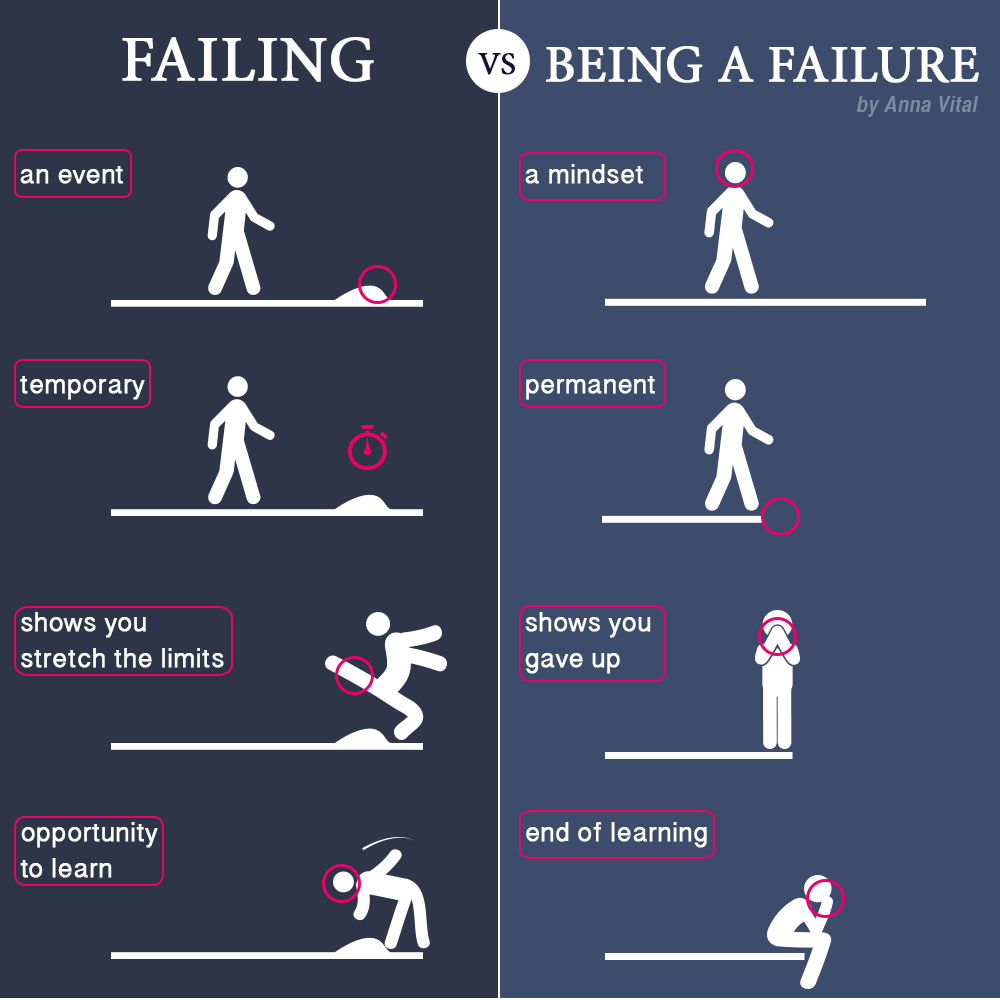More About Failure Resumes
/Two years ago, a Princeton professor’s “CV of Failures” went viral, encouraging all of us to admit our misses and view them as learning experiences. This week, The New York Times popularized the idea in an article, “Do You Keep a Failure Resume?”
The author advises a strategy:
“When you fail, write it down. But instead of focusing on how that failure makes you feel, take the time to step back and analyze the practical, operational reasons that you failed. Did you wait until the last minute to work on it? Were you too casual in your preparation? Were you simply out of your depth?”
Of course, what he’s proposing is self-reflection. But the approach is rationale: to think through what happened. Research tells us that a more emotional approach—allowing yourself to actually feel negative emotions from a failure—leads to greater learning and makes it less likely that you’ll make the same mistake in the future.
We may avoid failure because we feel shame. The graphic above shows the difference between failing and “being a failure.” Experiencing failure instead of feeling like a failure helps us be vulnerable instead of feeling what could be debilitating shame.
Discussion:
How do you typically view failure? Do you try to forget about it? Are you harsh with yourself? Or something else?
Do you have a process of regular self-reflection? What could you do on a daily basis to learn from both your successes and your failures?



